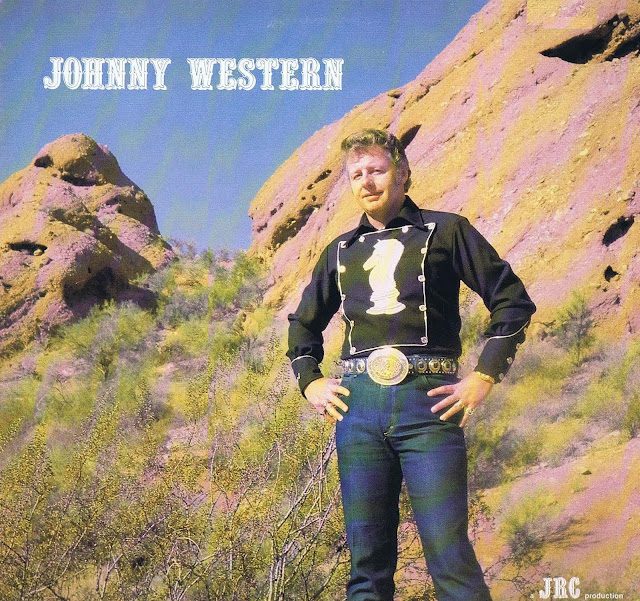Minnesota Country
I am a Minnesotan. More than that, I am obnoxiously Minnesotan. I suffer from a magnificent excess of civic pride, and so when people will say the name of a celebrity, like, I don't know, Richard Dean Anderson, I will inevitably respond "I think you mean Minnesota's own Richard Dean Anderson."
So if I am going to write about country and western music, I am, with regularity, going to write about Minnesota country and western music. Minnesota has produced, and continued to produce, an awful lot of great music in this genre. Here are just a few samples:
1. "Cowpoke," Johnny Western
Johnny Western, born Johnny Westerlund in rural Minnesota, saw a Gene Autry movie at age 5 and decided to be a cowboy singer, and pursued the job with a singleminded devotion that is awe-inspiring. He was a radio deejay at 13 — the youngest in America — and found work singing with Sons of the Pioneers at age 16.
Western also acted in cowboy stories, and, after appearing in an episode of "Have Gun Will Travel" in 1962, composed his own theme for the show, "The Ballad of Paladin," which become the show's closing theme.
Unfortunately, Western started his career in the waning days of the singing cowboy, and so only put out one album in the 60s (and would wait 20 years until his next album.) But 1962's "Have Gun - Will Travel" is about as good a cowboy album as has ever been released. On it, he offers a version of "Cowpoke" that I would put high in the running for best cowboy song ever recorded.
The song was written by Stan Jones, a former rodeo rider who composed some of western music's most iconic songs, including "Ghost Riders in the Sky." "Cowpoke," with its whooping melody and its marvelous lyrics, which cast the cowboy as a sort of hardcsrabble rebel, is already a tremendous song, but Western's version, with its yodels, its cinematic arrangement, and its foregrounding of Western's superb voice, is just thrilling.
2. "Six Days on the Road," Dave Dudley
Deep-piped country singer Dave Dudley hailed from Wisconsin and spent his early years as a deejay at Midwestern stations, including in Minnesota. It was here that he recorded his first hit record, "Six Days on the Road," in 1963.
The song was recorded at Kay Bank Studios, which is best known for grinding out a string of Midwestern garage rock hits, including "Liar, Liar" by the Castaways and The Trashmen's "Surfin' Bird." Dudley's song isn't garage rock, of course, but features the studio's signature deep reverb and tasty electric guitar licks.
Dudley's song is one of the earliest country songs to deal with trucking, and he nails it. The song, written by Earl Green and Carl Montgomery, mostly details the loneliness of long-haul trucking, told in untranslated trucker slang, and painting a vivid portrait of life on the road, with an explicit reference to the amphetamine pills many truckers used to manage long trips. Almost every trucker song to follow this one would borrow elements from Dudley's recording.
3. "Mama Spank," Liz Anderson
Liz Anderson, who hailed from Roseau, Minnesota, started her career in country music in Bakersfield, California in the 1960s, which was then the hub of a twangier, grittier sort of country than was coming out of Nashville.
She recorded the awesomely titled "Mama Spank" in 1964, and it would be the biggest hit of her career, even earning her a nod from the Grammys (she lost to Tammy Wynette.) The song has a cheerful quality, sung slowly and clearly, like you would to a child, with the sorts of simple declarative statements you would offer to a child.
She's not singing to a child, though; she's singing to a wayward husband, and her message is clear: If he doesn't start behaving, she's going to get a stick and thrash him within an inch of his life.



Comments
Post a Comment